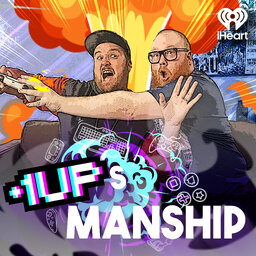1Upsmanship: Interview with Game Designer: Charlie Cleveland
One of our most esteemed guests, the designer of Subnautica and new miniature RTS game Moonbreaker, Charlie Cleveland stops by to talk about the design process, his long term goals and experiences as a designer, following up on the success of Subnautica, and how to deal with valid criticisms on a release. You can check out his new game Moonbreaker in Early Release on Stream. Join us for a great conversation about how games are made!
In 1 playlist(s)
1Upsmanship
Michael likes story-driven games with lots of contemplative moral quandaries and inventory managemen…Social links
Follow podcast
Recent clips

1Upsmanship: Star Wars Jedi: Survivor (Feat. Cody Johnston)
1:03:34

1Upsmanship: L.A. Noire
57:12

1Upsmanship: Legend of Zelda - A Link To The Past (Feat. Danielle Radford)
1:10:51
 1Upsmanship
1Upsmanship